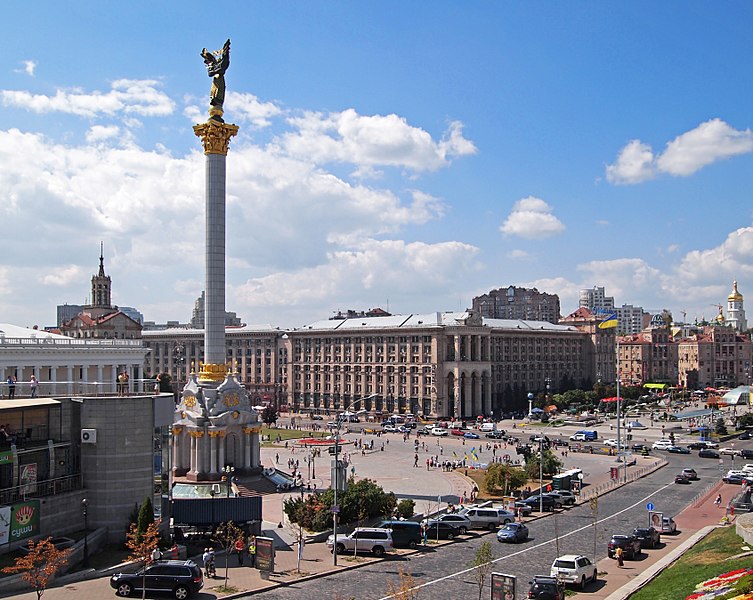
The sociological survey conducted by the «LLI» company from December 13-15, 2024, under the supervision of the Centre for European Democracy Studies, provides a nuanced understanding
of Ukrainian societal, political, and economic attitudes. Encompassing a total of 15,088 respondents from various regions of Ukraine—excluding occupied and front-line areas—as well as Ukrainian refugees abroad, the study employs a combination of face-to-face interviews and telephone surveys via the "IQR" system. The sampling methods ensured representation with a margin of error of ±1.5%.
- Demographics
Age Distribution: Respondents aged 18-25 constituted 13.47% of the sample, while the largest group was those aged 56-65, making up 19.94%.
Gender Representation: Women accounted for a majority (60.47%) of respondents, compared to men (39.53%).
- Geographical and Cultural Insights
Regional Representation: Participants hailed from Ukraine’s West (29.22%), Center (25.97%), Kyiv (6.56%), Southeast (22.56%), and abroad (15.94%).
Celebratory Practices: A division in Christmas celebrations was observed with 50.83% will celebrate on December 25, while 18.94% will celebrate on January 7, and 17.70% of respondents will celebrate on both dates.
- Political and Electoral Attitudes
Election Preferences: A majority (65.15%) expressed support for re-electing both the President and parliament, indicating a desire for political renewal.
Issues of National Concern: The war dominated national concerns, alongside recurring issues like corruption (43.84%) and economic challenges such as low wages and high prices.
- Economic Outlook
Financial Struggles: 41.85% of respondents stated they could manage household expenses but found it difficult to afford more significant expenditures, while 9.26% reported severe financial strain.
Economic Direction: A majority of respondents perceived the country’s economic trajectory as either stagnating or moving in the wrong direction.
- War and Peace
War Sentiments: Only 19.92% of respondents expressed optimism about an outright Ukrainian victory. Immediate peace negotiations garnered considerable support, particularly among respondents abroad (91.21%).
Mobilization Concerns: An overwhelming 88.96% opposed lowering the mobilization age.
Respondents also answered the question: "What elements of the security and defense system can protect Ukraine from future wars?" The top response, with 25.11%, was the return of Ukraine to the nuclear club through the development of tactical nuclear weapons. This was followed by the development of domestic weapons production at 24.04%, and the creation of a professional army at 22.95%. Society is beginning to understand that it needs to rely more on its own strengths.
- Foreign Relations and Assistance
International Influence: 71.65% acknowledged the significance of the U.S. position on Ukraine’s situation, and respondents largely supported continued military aid.
NATO Membership: A significant proportion prioritized NATO integration for Ukraine’s future security.
- Social Trust and Media
Information Sources: Social media platforms, particularly Telegram (21.48%), followed by Facebook and Instagram, were the most trusted information sources. Social media was deemed more reliable than traditional media among respondents.
This survey sheds light on the multidimensional challenges facing Ukraine, including war-related uncertainties, economic struggles, and governance concerns. Key takeaways include:
- A pronounced demand for political accountability and effective measures to combat corruption.
- Divisions within public opinion on prioritizing immediate peace negotiations versus pursuing prolonged conflict for territorial integrity.
- Overarching concerns for survival amidst significant economic and security pressures.
While the survey successfully captures a diverse range of opinions, its reliance on technology for data collection, particularly among displaced populations, raises concerns about inclusivity and the representation of marginalized voices without technological access.
This sociological snapshot provides critical insights for policymakers, NGOs, and international stakeholders seeking to address the needs and priorities of the Ukrainian populace. Future research efforts could focus on amplifying the perspectives of marginalized groups and tracking longitudinal changes in attitudes over time.
The complete survey findings are available for further exploration, offering a detailed framework for understanding public sentiment during a pivotal period in Ukraine’s history. Photo by Tiia Monto, Wikimedia commons.



































